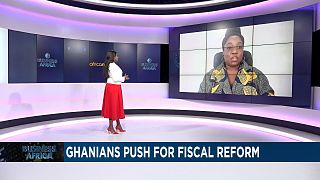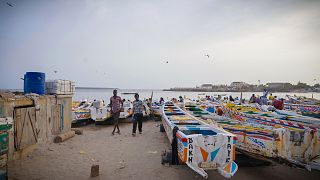Business Africa
The United Arab Emirates (UAE) continues to solidify its position as Africa’s top investor, with significant contributions to renewable energy and infrastructure development.
From solar power projects in North Africa to large-scale infrastructure ventures in East and West Africa, UAE-backed initiatives are reshaping the continent’s landscape. However, concerns about labor practices and environmental standards persist.
Dr. Carole Nakhle, President of the Arab Energy Club, shared her insights on this critical topic during an exclusive interview. She highlighted what sets the UAE’s approach apart from other international investors. “The UAE brings a unique blend of strategic vision and financial muscle, coupled with an emphasis on long-term partnerships,” Dr. Nakhle noted. However, she emphasized the importance of African governments playing a proactive role in ensuring these projects yield tangible benefits for their citizens.
“It’s about striking the right balance,” she said, urging African policymakers to establish robust frameworks that protect local interests while encouraging foreign investment.
Report by Joy Idollo.
Zimbabwe Battles the Surge of Counterfeit Goods
Zimbabwe’s economy faces a growing threat from counterfeit products, which not only harm legitimate businesses but also pose serious public health risks. From counterfeit pharmaceuticals to fake food products, the problem has reached alarming levels.
To tackle this issue, the Zimbabwe Revenue Authority (ZIMRA) has intensified its efforts to monitor and control the inflow of counterfeit goods. With enhanced border security measures and public awareness campaigns, the government aims to safeguard consumers and protect the integrity of its market.
Correspondent Keith Baptist reports that despite these efforts, challenges remain, including limited resources and the ingenuity of counterfeiters. Nevertheless, authorities remain committed to eradicating this menace, recognizing its long-term economic and social implications.
Africa’s Economy Shows Signs of Recovery
Africa’s economic outlook offers a glimmer of hope amidst a backdrop of inflation, rising debt, and climate-related challenges. According to recent projections, the continent’s GDP growth is expected to climb from 3.4% in 2024 to 3.7% in 2025, buoyed by improvements in key regional economies such as Nigeria, Kenya, and South Africa.
This modest recovery is driven by structural reforms, increased investment in critical sectors, and a rebound in commodity prices. However, experts caution that achieving sustainable growth will require addressing systemic issues such as youth unemployment, infrastructure deficits, and the climate crisis.





![What is at stake for African sovereign debt in 2025? [Business Africa]](https://static.euronews.com/articles/stories/08/95/13/36/320x180_cmsv2_f788cdcf-3a61-51f2-a404-29b5263cc125-8951336.jpg)







01:16
Africa mourns Pope Francis, a voice for peace and justice
01:14
ECOWAS Meets in Ghana to Tackle Member Withdrawals
01:36
Migration and refugee policies key to economic growth, Say UN and IMF experts
Go to video
Foreigners face gold trading ban in Ghana beginning May 1
Go to video
EU foreign ministers discuss Ukraine, Syria and EU-African relations in Luxembourg.
01:02
First payments made to white farmers affected by land reforms in Zimbabwe